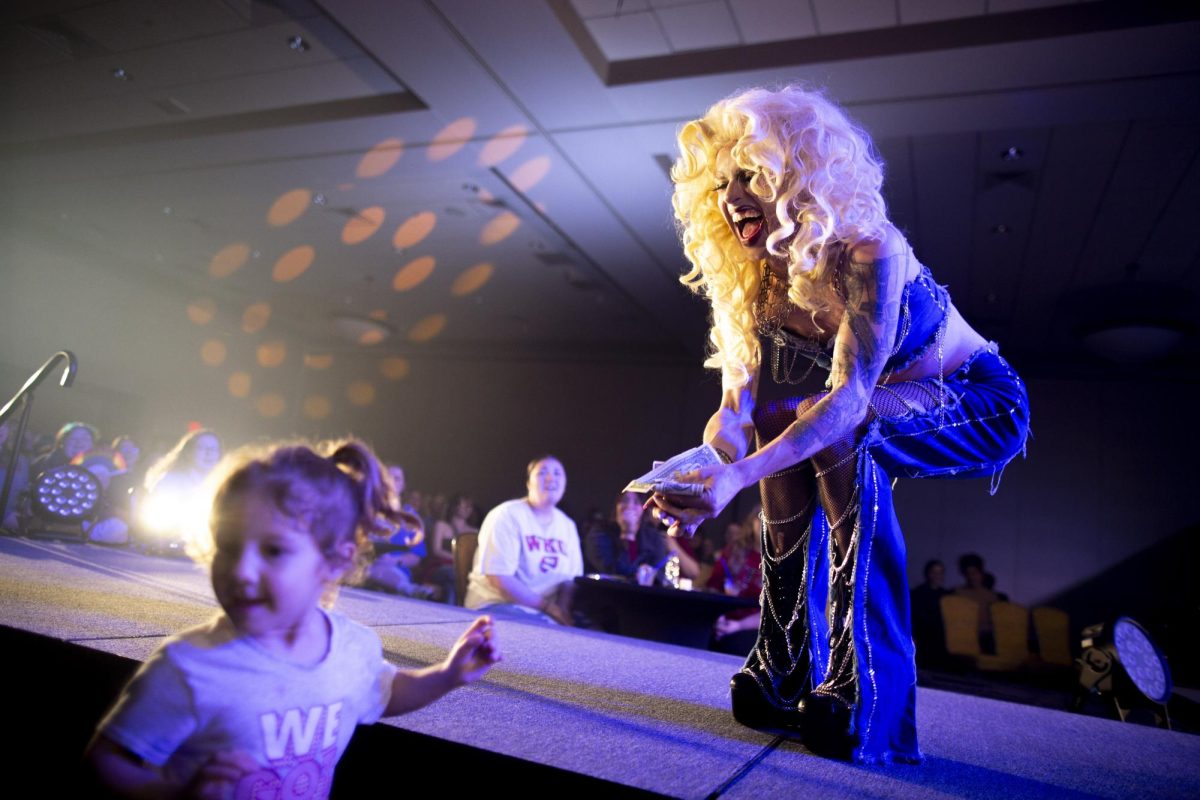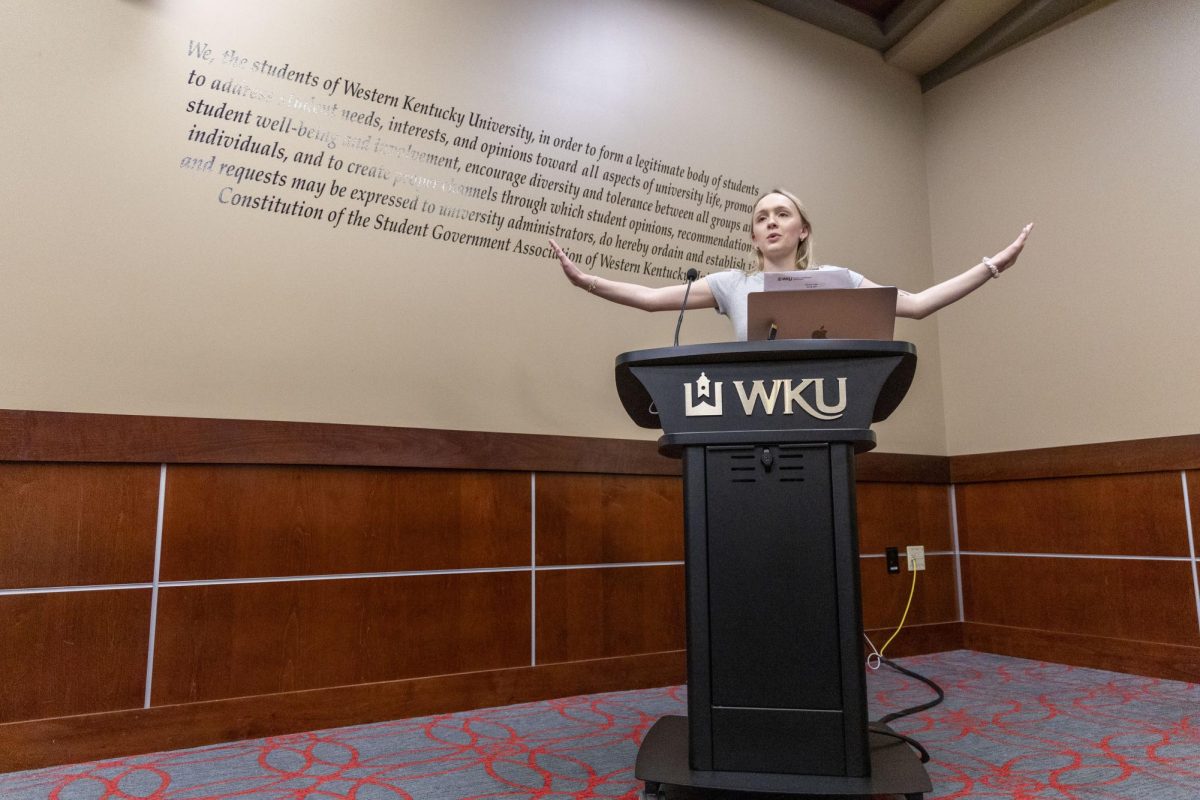Students participate in poverty simulation
October 8, 2017
What is it like to live in poverty? Health and social work students found out last Tuesday by participating in a poverty simulation held at Downing Student Union.
The Poverty Simulation is sponsored by the South Central AHEC (Area Health Education Center) in the College of Health and Human Services in cooperation with Community Action of Southern KY.
Lucy Juett, Center Director for South Central AHEC, said she is very passionate about the simulation. She said she believes that it will help future health care workers be more empathetic and understanding towards those they serve.
As an example, she said some people who use the emergency room as primary care may not have the luxury of missing work to make a doctor’s appointment. Some people who fail to keep appointments may have unforeseen circumstances arrive like not having a car or a phone.
The simulation is a role-playing excercise consisting of a month of poverty condensed into four fifteen-minute weeks. Students were randomly assigned into a family, and volunteers played the part of teachers, employers, social workers and pawn shop owners.
Johnny Polson, a social studies instructor at South Warren High School, played the role of “the resident criminal” in the simulation. He said the relationship between crime and poverty is very clear in his mind.
“I don’t think people want to do bad, but they want to do what they have to for their family,” Polson said.
Katie Hudgens, a junior from Shelbyville, played the role of a 9-year-old girl living with her grandparents.
“When I was a kid I never worried about what I was going home to. I can’t imagine kids leaving school knowing that lunch was the last meal they were going to have for the day,” Hudgens said. “It frightens me to know that other people are in that situation.”
Cazandra Trejo, a junior from Los Angeles, played a mom in the simulation and said she found it very stressful. “We didn’t have enough time. We didn’t have enough resources.”
At the end, students participated in a debriefing and were asked to share their impressions of their simulated month in poverty. Many students participating said the situations were stressful, and the time to accomplish tasks were limited.
Leslie Talley, Chief Operation Officer of Community Action, has ran poverty simulations in Bowling Green for about eight years. Her favorite part of the simulation is what she said is the “aha moment” at the end when participants realize real people live through these circumstances every day.
Dawn Wright, an associate professor in the School of Nursing, is the principal investigator of an ongoing study about the poverty simulation. So far the study has had over 350 participants.
“Our analyses thus far indicate that participants have improvements in their attitudes related to the stigma of living in poverty and societal structures that may impact those living in poverty after completing the simulation,” Wright said.
A publication on the thematic content of reflective journals written by nursing students who participated in the simulation will be coming out next year in the “Nursing Education Perspectives”.
Talley ended the simulation with a final reminder. “The next time you go to the grocery store and the person in front of you is counting out their ones and fives, or can’t speak the language very well, be compassionate. Think about what you went through today.”












